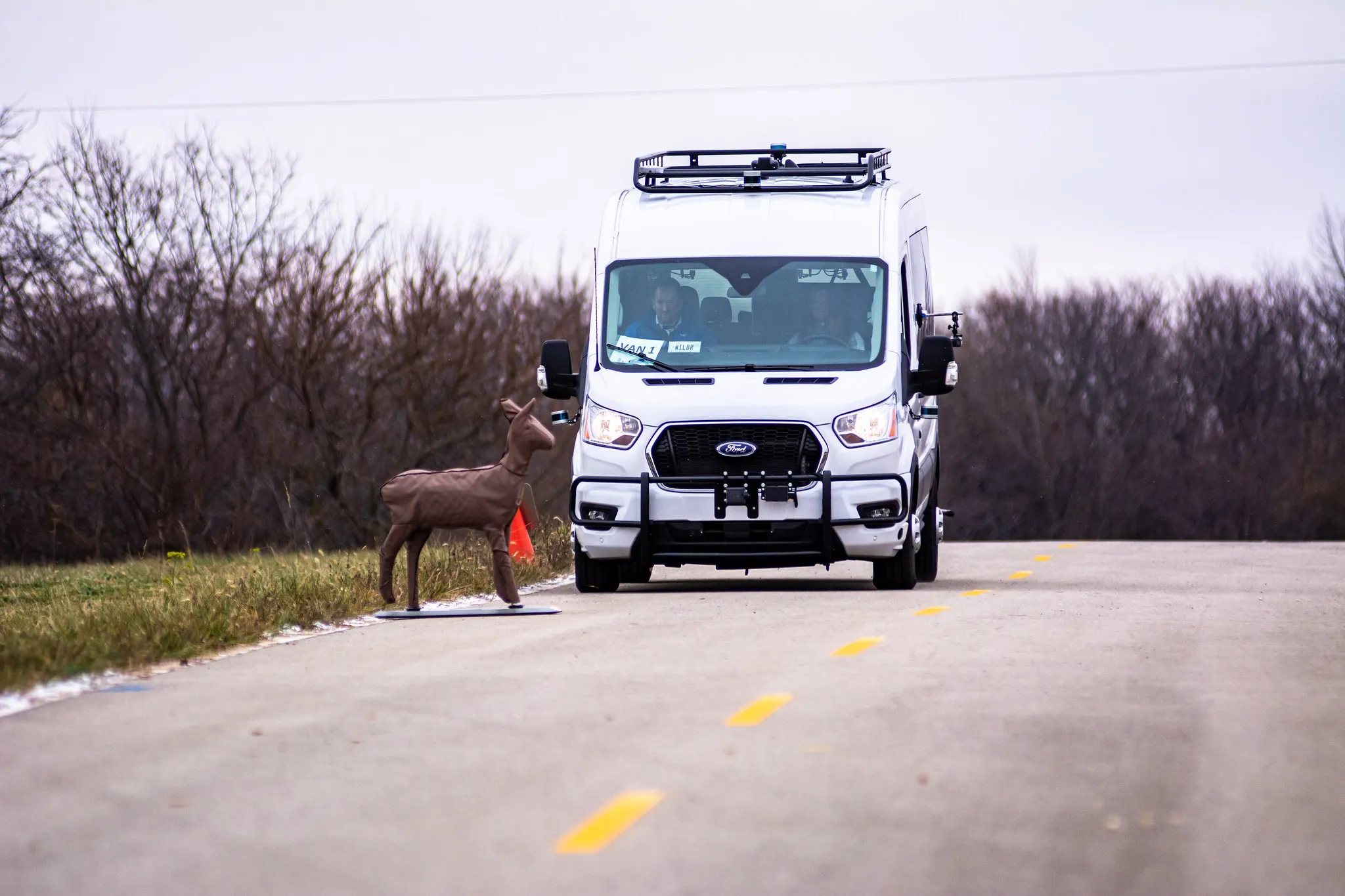The first truck platooning trials on UK roads are planned to take place by the end of 2018, Transport Minister Paul Maynard has said.
Announcing the US$10 million (£8.1million) government funding for trials today, Maynard said advances such as lorry platooning could benefit businesses through cheaper fuel bills and other road users thanks to lower emissions and less congestion.
The platooning trials will see up to three heavy goods vehicles, travelling in convoy, with acceleration and braking controlled by the lead vehicle. All lorries in the platoon will always have a driver ready to take control at any time.
If successful, this technology could have major benefits for motorists and businesses in the UK. A row of lorries driving closer together could see the front truck pushing the air out of the way, making the vehicles in the convoy more efficient, lowering emissions and improving air quality.
The Transport Research Laboratory will carry out the trial, with funding provided by the
Jim O’Sullivan, Highways England chief executive, said the trial has the potential to demonstrate how greater automation of vehicles – in this instance, HGVs – can deliver improvements in safety, better journeys for road users and reduction in vehicle emissions.
The trial will be carried out in three phases, with the first focusing on the potential for platooning on the UK’s major roads. Initial test track based research will help decide details such as distance between vehicles and on which roads the tests could take place.
Trials are expected on major roads by the end of 2018. Each phase of the testing will only begin when there is robust evidence that it can be done safely.
Similar trials have already been successfully carried out in Europe and the United States.
However, Christopher Snelling, FTA’s head of national policy says, after first announcing the platooning trial in November 2016, it is imperative that government now moves plans forward quickly and efficiently to enable the logistics sector to plan efficiently for the future.
Commenting on the news, Jason Wakeford, director of campaigns for Brake, the road safety charity, said: "Rather than platooning lorries on already congested UK roads, the Government should instead cut emissions and improve public safety by moving more freight from road to rail. Each freight train takes around 60 HGVs off the road network.
"This rigorous trial is needed to prove whether this technology really can provide the safety and environmental benefits which are claimed."
UK to trial truck platooning by the end of 2018
The first truck platooning trials on UK roads are planned to take place by the end of 2018, Transport Minister Paul Maynard has said. Announcing the US$10 million (£8.1million) government funding for trials today, Maynard said advances such as lorry platooning could benefit businesses through cheaper fuel bills and other road users thanks to lower emissions and less congestion. The platooning trials will see up to three heavy goods vehicles, travelling in convoy, with acceleration and braking controlled by
August 25, 2017
Read time: 3 mins









